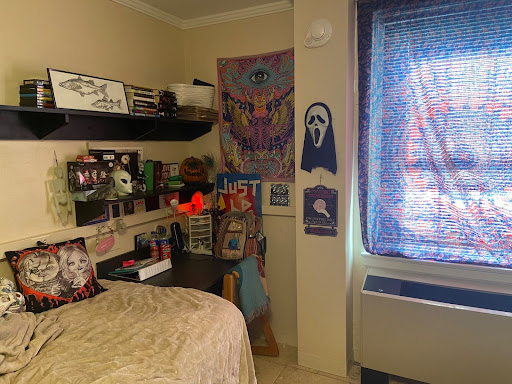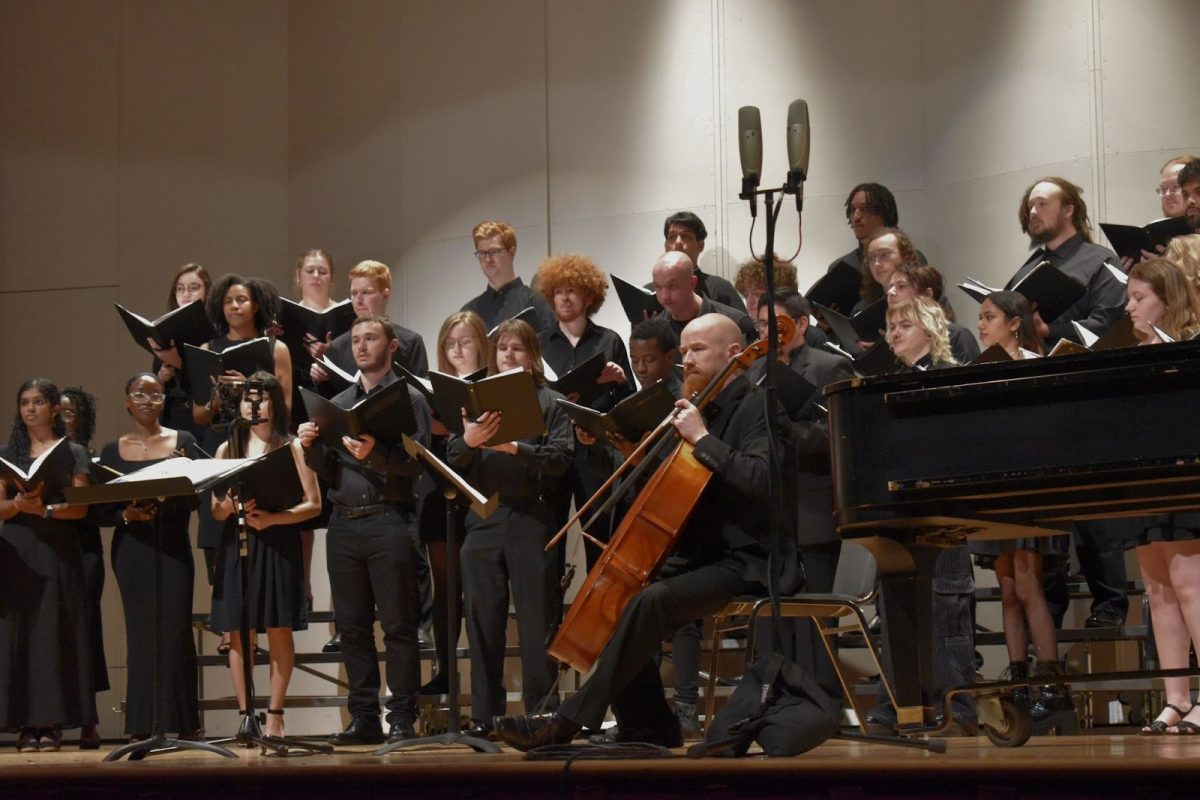About 90 people packed themselves tightly into the Hege Library Art Gallery. Once the chairs were full, people sat against the walls. Brownies and coffee were dispersed among the crowd. Tess Taylor stepped up for her reading and the group went silent.
The readings were from her new book, “The Forage House.” The book is a collection of poetry written for the purpose of storytelling: family stories, historical stories and personal stories.
“I don’t know what I think until I write it,” Taylor said.
So she writes about her grandmother, who was dying at the time the book was written, to both know how to cherish and mourn her. She writes about what it means to come from a family that used to be slaveholders, and what it means to be a direct descendant of Thomas Jefferson. She writes about her life, her home and her emotions, in order to know what they are.
“Oh unfinishable homes, you each feel so real so briefly, I feel you incomplete me,” Taylor read in a poem about her home state California.
Her beautiful words created a series of gasps and nods of agreement throughout the room.
“I really enjoyed when she was talking about what inspired her and how she related to her work,” first-year Nicole Barnard said.
“I was struck by the poems, their combination of outward solidity and fragile introspection,” Assistant Professor of English Mylène Dressler said.
These poems are not just shaped out of long talks with family — though Taylor admits she always found inspiration in what her grandmother said on the porch after two gin and tonics — these poems are shaped from research and records.
“We’re made of stories and the people who tell us how to write stories are literary people, which is why so many of these poems started with books,” Taylor said.
Taylor spent a lot of her time tucked away in library going through old maps, books and journals, and also spent time in excavation sites around old family land.
“I was given a grant to go study and write a non-fiction book on Jefferson and my family history,” Taylor said. “But I wasn’t cut out for that work. There were shards of information but nothing was complete through and through.
“I wanted to write about my grandmother, but I thought, who would want to read a book about Thomas Jefferson and my grandmother?” Taylor said. “But this book connects it all, in the fitting format of poetry and prose.”
“The experience of great readings transports us, teaching and unlocking at the same time,” Dressler said of the readings from that book.
It is true that she did capture nearly all of her experiences, writing them down in computer documents or the notebook she carries around with her at all times. Taylor said, “I get panicky when I don’t have it near. I feel like I’ll lose thoughts, and maybe those thoughts are the ones that are really going to turn into something.”
And as the audience applauded and laughed, they were thankful for that notebook and those thoughts that are more than worthy of being shared with the world.






